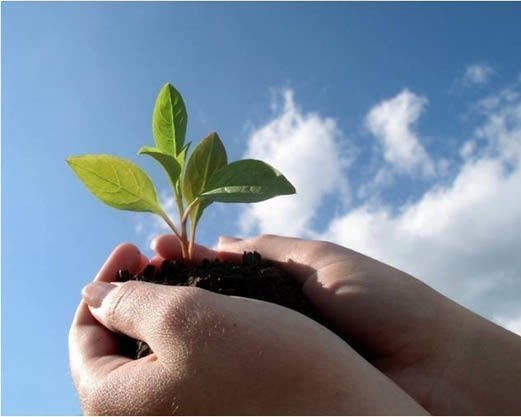Deadline: 2 April 2020
The World Bank’s Agriculture Observatory with the support of Draper University is launching three innovation challenges to accelerate the world response to the growing effects of climate change in agriculture and tackle some of the most urgent needs in SADC agriculture and food security today.
The agriculture sector faces increasing risks as natural disasters become more frequent and disruptive due to climate change. Climate change is expected to intensify the following agriculture risks in the South Africa Development Community (SADC):
- Crop failures due to extreme weather events (drought, floods)
- Animal and/or plant pests or diseases
- Food price, agriculture, and trade flow disruptions
To incentivize the development of these risk financing tools, the World Bank is launching the following three challenges with the aim to demonstrate alternative ways of collecting or monitoring critical data sets and indices that can be used to ultimately assess in a granular, scalable and dynamic way the various dimensions of impact induced by agricultural stressors.
Challenge 1: Alternative Methods for Measuring Weather Variables
Weather data is essential for the development of risk finance mechanisms and other key tools to strengthen the financial resilience of farmers to climatic shocks. This includes measurements of excess rainfall and rainfall deficit, among other variables.
Thematic Areas
- Data sets resulting from alternative measurements should be publicly shareable
- Demonstrated consistency of alternative measurement techniques over time
Challenge 2: Predicting or Monitoring Animal and/or Plant Pests or Disease Outbreaks
Pathogens are expanding in new areas never affected before, exacting significant economic cost on the livestock sector and crop sector. Prevention, and early warning for rapid response are essential.
Solutions that integrate environmental determinants (e.g., soil, vegetation, temperature, rainfall) and epidemiological factors (e.g., vector species, livestock, wildlife, trade, human biological and behavioral surveillance), could be then used to inform about risk mitigation measures, such as restriction of movements or vaccination.
Thematic Areas
- The plant pests and/or animal diseases in scope should be those relevant for the SADC region, such as vector borne diseases with seasonal patterns (e.g., Rift Valley Fever, January Disease, etc.).
- The solutions demonstrating the use of alternative data inputs (such as social media or other vectors driving the spark and spread of animal diseases) will receive bonus points.
Challenge 3: Bring Your Own Agriculture Data
Objective, transparent, accessible, and accurate data is essential to develop high quality, affordable risk financing instruments (such as insurance) or ag information systems. With expansion of novel data collection techniques, non-traditional methods of data collection can leap-frog traditional methods of yield collection and expand the scope and availability of risk financing instruments for farmers.
Present time series of agriculture data (yield, price, production) data for crops relevant to the SADC region in an electronic format. The proposal must explain how the agriculture data was obtained and why it is relevant.
Cooperatives, input suppliers, agribusinesses, financial institutions, and local NGOs that have collected agriculture data in the SADC region can submit their data set. Ineligible data sets include: official data sets by the government or international organizations (i.e. FAO, etc.).
Thematic Areas
- The data sets should be actual observations and not forecasts
- The crops in scope should be the ones most relevant for the SADC region
- Data sets should not be more than 10 years old
- Data sets should be continuous time series, with minimum data gaps
- High geographic coverage will receive extra points
- Quality of measurement method will be scored (i.e. crop cut versus self-reported)
- The most comprehensive data set will win
- Spatial density of data points will be scored
- The methodology for data validation will be scored
What is the Prize?
The winners of each challenge will be able to present their findings and ideas to a panel of experts from top international institutions in a Shark Tank format. You will be invited to present your proposal work in a report on agriculture innovations by the World Bank and partners. You will be featured in key media outlets as an innovator in the area. They will also be invited to an award ceremony in Washington, D.C., (all expenses paid) and will have the opportunity to interact with potential partners.
Judging Criteria
Submitted proposals will be ranked according to the following criteria:
- The proposals must follow the provided template and all documents must include the name, institution and thematic area chosen in its heading.
- Present a clear strategy for developing a model or monitoring tool in the thematic area chosen that follows the requirements defined in this document.
- Affordability of the solution.
- Geographical focus on Southern African countries (defined by those countries members of the Southern Africa Development Community – SADC).
- Establish a clear path towards application of the solution on-the-ground.
- Demonstrate the capacity of the proposed solution to scale up to more countries/regions.
- Demonstrate the performance of the model proposed against the data sources/databases mentioned for each thematic challenge.
- Demonstrate how the performance of the solution has been validated.
- Meet World Bank eligibility requirements:
- Development and usage of open access data, products, tools and approaches,
- Open source technological solutions that are simple and replicable are encouraged,
- Involvement of local research or other partners in developing countries on an equal basis.
For more information, visit https://info.gro-intelligence.com/world-bank-ag-innovation-challenge-2020
